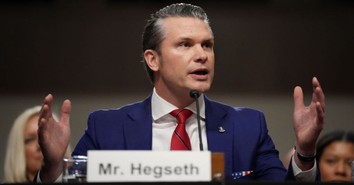Churches Serving Communion amid Coronavirus Fears: Three Ways to Make a Difference that Matters
The stock market had its worst one-day point drop in history yesterday, falling nearly 1,200 points as worries about the coronavirus epidemic escalate. In light of the virus, companies are canceling business travel and corporate off-site events around the world and making plans for more employees to work remotely. Airlines say the epidemic could cost their industry as much as $100 billion.
The CDC has confirmed a coronavirus infection in a person in California who reportedly did not have relevant travel history or exposure to another known patient with COVID-19. This could be the first instance of community spread—the spread of an illness for which the source of the infection is unknown—in the US. It is also possible, however, that the patient was exposed to a returned traveler who was infected.
Churches are discussing ways to handle communion and worship service crowds in light of the virus and the flu. The US and Seoul have postponed joint military exercises as South Korea struggles to contain the virus. Hong Kong’s 800,000 students are studying online in the midst of a two-month school closure.
My first thoughts are for my wife, children, and grandchildren. You feel the same way about your family. Next, I think about my colleagues and friends. If any of them becomes sick with the virus, an objective news story would become very personal, very quickly.
It is the same with any other disease or disaster we read about in the news.
Reading LGBTQ books to children
As of this morning, 83,704 people worldwide have contracted the coronavirus, with 2,859 deaths. The CDC estimates that so far this season at least 29 million people in the US have contracted the flu, with 280,000 hospitalizations and 16,000 deaths.
A single one of these deaths in my family would change our family forever.
The Human Rights Campaign is conducting a “National Day of School & Community Readings” at which books celebrating LGBTQ lifestyles will be read to students. This seems like an abstract issue, but if such a day were staged at my granddaughter’s school, it would become very personal.
US pedestrian deaths rose in 2019 to their highest level in thirty years, an issue that feels impersonal until someone you love is killed by a driver. And the US Senate unanimously passed legislation last November criminalizing some acts of animal abuse, but it could not find the votes this week to discuss legislation protecting babies who survive abortion.
Tellingly, CNN described a baby who survives abortion as a “fetus that was born.” As Alexandra DeSanctis notes, “Too many politicians are committed to the notion that the unborn have no rights if they are deemed unwanted.”
My guess is that a pro-abortion politician whose grandchild survived abortion would feel differently about the legislation he or she just rejected.
Three steps to compassionate purpose
Scripture repeatedly teaches that Christians are the “body of Christ” (1 Corinthians 12:27), change agents intended by the Spirit to make a catalytic difference in our fallen world (cf. Matthew 5:13-16). But if you’re like me, the drumbeat of bad news we hear from our 24/7 news cycle makes it hard to avoid compassion fatigue.
It’s easier to emotionally ignore the stories that don’t affect us personally. Until they do.
The key to personal engagement with the coronavirus and other issues of our culture is to make them personal. To that end, let’s consider three steps.
One: Pray for compassion. Ask God for his eyes for those in need. Ask him to help you “rejoice with those who rejoice, weep with those who weep” (Romans 12:15).
Two: Serve those you can with humility and gratitude. Philippians 2 describes Jesus’ decision to take “the form of a servant” as he “humbled himself by becoming obedient to the point of death” (vv. 7–8). We are to serve others in the knowledge that we are debtors to grace just as they are. We are beggars helping beggars find bread.
Three: Trust God to change lives as only he can. As we work, he works. When we plant seeds of truth, his Spirit nurtures them in transforming ways.
Conversely, trying to do God’s work in our strength is a quick path to burnout. Oswald Chambers: “The reason some of us are such poor specimens of Christianity is because we have no Almighty Christ. We have Christian attributes and experiences, but there is no abandonment to Jesus Christ.” But the more we abandon to Jesus in complete reliance, the more he does the impossible through us (cf. Philippians 4:13).
"Act well your part"
God redeems all he allows. Let’s look for ways to redeem the coronavirus epidemic through compassion and service with a vibrant faith that glorifies our Lord. And let’s remember that enduring success is measured not by popular opinion but by purposeful obedience.
In “An Essay on Man,” Alexander Pope advised us: “Act well your part, there all the honor lies.”
What is “your part” today?
Publication date: February 28, 2020
Photo courtesy: ©Getty Images/Omohiro Ohsumi/Stringer
Jim Denison, PhD, is a cultural theologian and the founder and CEO of Denison Ministries. Denison Ministries includes DenisonForum.org, First15.org, ChristianParenting.org, and FoundationsWithJanet.org. Jim speaks biblically into significant cultural issues at Denison Forum. He is the chief author of The Daily Article and has written more than 30 books, including The Coming Tsunami, the Biblical Insight to Tough Questions series, and The Fifth Great Awakening.
The views expressed in this commentary do not necessarily reflect those of CrosswalkHeadlines.
For more from the Denison Forum, please visit www.denisonforum.org.
The Daily Article Podcast is Here!







